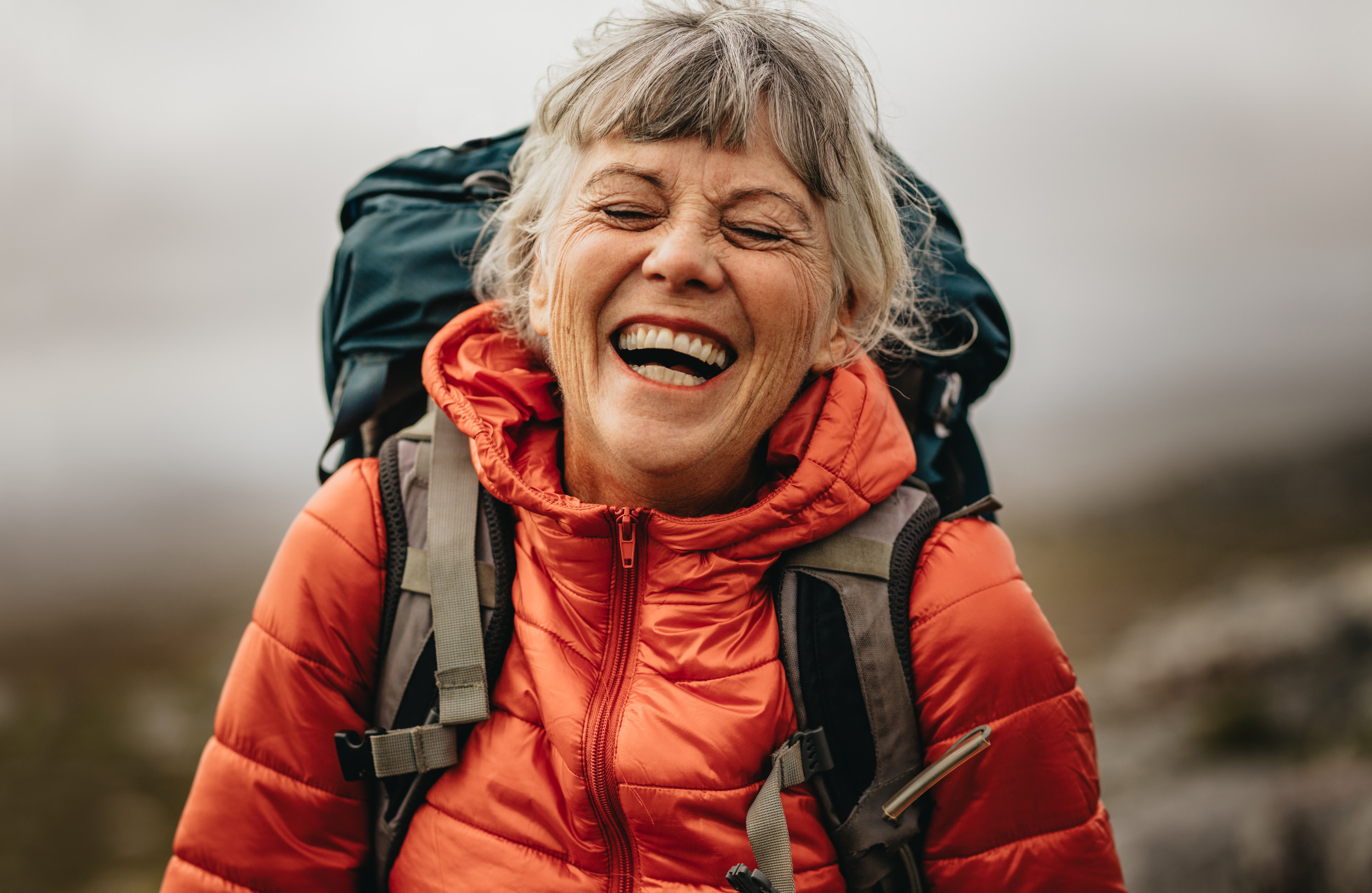Military-inspired workout has “huge wins” for women, says personal trainer

A workout inspired by soldiers marching with heavy military backpacks is growing popular among menopausal women, bringing benefits for their health, according to fitness experts.
“Rucking is walking for extended periods of time with weight on your back—whether you’re in the middle of a city or up in the mountains,” Kate Ligler, personal trainer and expert for Tylenol Precise, told Newsweek.
“It is a low-impact workout originating from the term ‘rucksack,’ or a specifically designed backpack for carrying equipment in the military over long distances by foot.”
Any number of objects could be used for rucking, said Ligler, but a military rucksack distributes weight higher up the back, encouraging good posture and engaging the core.
Nichele Cihlar, director of training at rucking company GORUCK, told Newsweek: “Although rucking originated in the military, commonly known as the ruck march, most of us ruck daily without even realizing it.
“When you are carrying your child, heading to the airport or unloading groceries, you are rucking. If you are carrying the weight while walking, you are rucking.”
The workout has become popular, they both said, because it is accessible, cheap and can be tailored to each person’s level. Among menopausal women particularly, the workout offers a scalable way to achieve fitness goals that especially benefit that group.
jacoblund/Getty Images
Ligler said that rucking could mean “huge wins for the average menopausal woman.”
Cihlar explained: “There has been a growing interest in rucking from older women due to the recognition of its numerous health benefits, and at any age it’s important to lift weights that are challenging to you.
“Resistance training such as lifting weights makes us stronger and strengthens our bones which can reduce the risk of fractures or breaks as we age. As many older adults look to maintain an active lifestyle, rucking provides the opportunity to do so while also allowing it to be an outdoor activity.”
She added that many women appreciated being able to take the workout at their own pace, and: “No one goes outside for a ruck and comes back in a bad mood!”
Cihlar said that, as we age, resistance training—workout out with weights—was one of the best things we could do for our health and fitness, for muscle strength, heart health and bone density.
“Adding weight to your walks is a simple, low-impact way to add resistance training to your daily routine,” she said, explaining that rucking could be “very beneficial” for perimenopausal, menopausal and post-menopausal women, but also had “benefits for everyone no matter your age.”
Ligler said that the added weight provided by the backpack created “a mechanical load on the bones, which stimulates the bone-forming cells and encourages bone growth.”
Rucking has seen a rise in popularity recently, Cihlar said, but that doesn’t mean it’s new.
“People have been rucking for hundreds of years and continue to do so without even realizing it,” she said. “You can start by adding magazines or water bottles to an old backpack.
“You can take a call while on a ruck, listen to a podcast, or take the dog for a ruck. It’s simple yet very effective.”
Do you have a tip on a food story that Newsweek should be covering? Is there a fitness question you would like to ask? Let us know via science@newsweek.com. We can ask experts for advice, and your story could be featured in Newsweek.
Related
Yaslen Clemente Shows Off Leg Day Gains and Shares Her…
Yaslen Clemente isn't just an influencer—she's a fitness powerhouse. The social media star is known for her intense workouts, and she recently sha
Samantha Espineira Stuns in Blue Swimsuit and Shares Her 5…
Samantha Espineira knows how to turn heads, both on and off the runway. The successful model and Instagram influencer regularly shares breathtaking
The Best Fitness Trackers To Help You Reach Any Health…
Best Health Tracker: Oura Ring 3Why We Love It: I’ve tried many, many fitness trackers—but I tend not to stick with one watch or band for very long. I’ve
#CycleSyncing debunked: Popular TikTok trend not backed by science
A new study has debunked a popular TikTok wellness trend called cycle syncing, which claims that tailoring a workout routine to match the hormonal changes that












